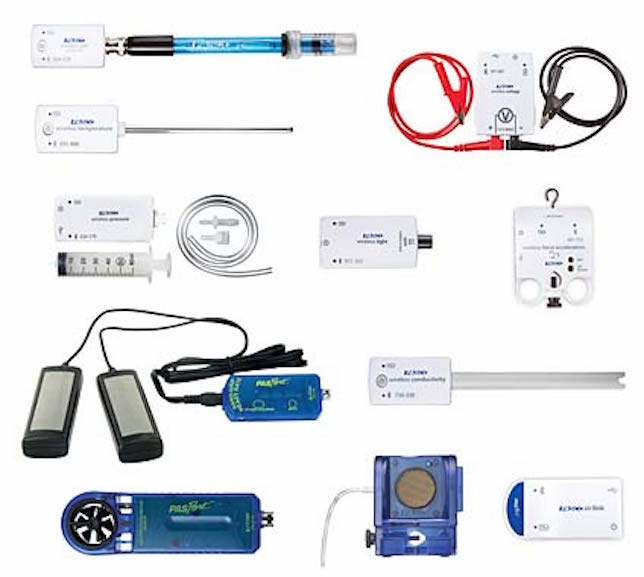North Carolina District Adopts PASCO’s Lab Sensors and Software for 87 Schools
Charlotte Mecklenburg Schools in Charlotte, NC recently rolled out a blended learning program using learning resources from PASCO Scientific and now the school district wants to adopt the company’s wireless sensors and accompanying software to foster hands-on, inquiry-based learning opportunities in STEM classes.

PASCO's wireless middle school science standard bundle.
The Essential Physics textbook and e-textbook were introduced in 19 high schools for the 2016-2017 school year, according to a news release. For the upcoming 2017-2018 school year, all 87 middle and high schools in the district will utilize:
- PASCO’s wireless middle school science standard bundle of wireless sensors, which can collect and graph temperature, pressure, pH, force acceleration, voltage and light data in real time via Bluetooth Smart technology. The wireless sensors can connect directly to computers, tablets, smartphones and Chromebooks with no extra hardware.
- The SPARKvue data collection and analysis software, which combines “rich standards-based content, data collection, visualization, analysis and assessment into one seamless environment,” according to a product overview.
- Teacher Guides that contain teacher-friendly versions of the labs (available in print, PDF, MS Word and on a flash drive), as well as questions and challenges for teachers to assign to students to drive critical thinking and help make connections.
North Carolina’s second largest school district will use these tools in “biology, chemistry, earth science, environmental science and physical science in grades 6-12,” the news release stated.
A demo of the Wireless Force sensor from PASCO.
To learn more, visit the PASCO Scientific site.
About the Author
Sri Ravipati is Web producer for THE Journal and Campus Technology. She can be reached at [email protected].